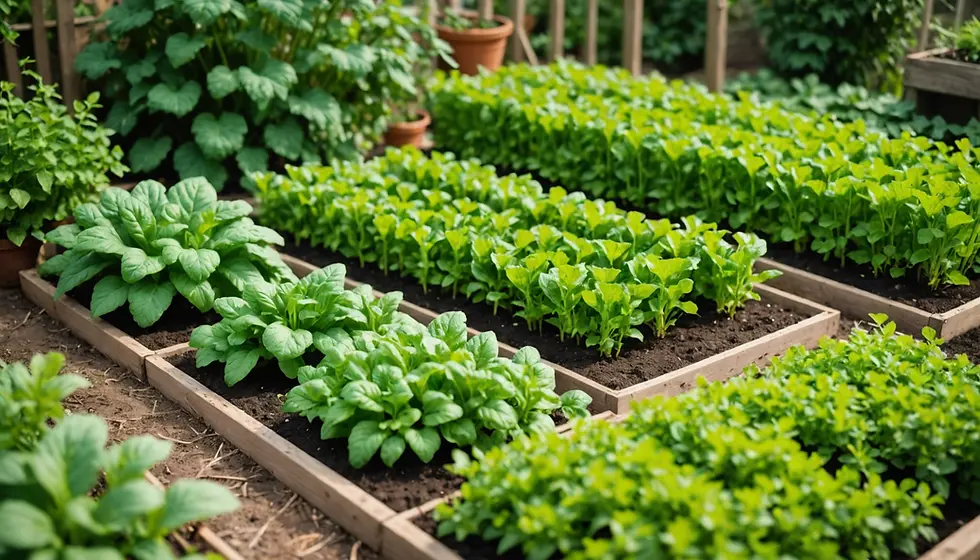Exploring the Possibilities of Owner Financing for Off-Grid Land: A Low-Cost Start-Up
- Crountryside Living
- Dec 14, 2024
- 4 min read
Off-grid living has become a popular dream for many individuals who seek a simpler, more sustainable lifestyle. The idea of owning land in a quiet, natural setting is incredibly appealing for those yearning for tranquility and freedom from modern constraints. However, the high costs associated with purchasing land can often discourage potential buyers. This is where owner financing becomes a game-changer. In this article, we will cover the benefits of owner financing for off-grid land purchases, how you can start living in a tent or camper while building your homestead, and why this method is a low-cost way to begin your off-grid journey.
Understanding Owner Financing
Owner financing is a creative alternative to traditional bank loans. In this arrangement, the seller of the land also acts as the lender. This means buyers can negotiate payment terms and conditions directly with the seller, bypassing the usual red tape involved with banks, such as credit checks. For example, if you find a piece of off-grid land listed at $25,000, the seller might agree to a down payment of just $2,500, with flexible monthly payments that fit your budget. This approach often results in less stringent requirements, making it an ideal option for first-time land buyers.
Why Choose Off-Grid Land?
Choosing to live off-grid means you need independence from public utilities. This lifestyle lets you reduce your environmental impact while increasing your autonomy. Off-grid land typically has lower costs associated with energy and materials, allowing you to establish a lifestyle reflecting your values.
For instance, homes powered by solar energy can save up to 75% on electricity costs compared to traditional grid systems. Additionally, growing your food can significantly cut grocery bills, with a well-planned garden yielding over $600 worth of produce per year on just a small plot. The potential for self-sufficiency is immense.
The Benefits of Living in a Tent or Camper
Starting your homesteading journey can be done effectively by living in a tent or camper for several reasons:
Cost Efficiency: Living in a tent or camper considerably decreases your living expenses, allowing you to allocate funds toward land improvements and sustainable practices. Many who live this way report savings of over 50% on typical housing costs.
Mobility: Tents and campers provide the flexibility to relocate easily if your situation changes or if you find a more suitable location.
Simplicity: Adopting a minimalist lifestyle encourages focus. With fewer distractions, you can work toward achieving your homesteading goals.
Nature Connection: Living close to nature can deepen your appreciation for the environment. This connection often leads to a commitment to sustainable practices, such as recycling and conserving resources.

Setting Up Your Off-Grid Homestead
Building an off-grid homestead involves thorough planning. Here are some key steps to guide your path:
Choosing the Right Land
Before purchasing, investigate the land's specific features, such as:
Water Source: Assess whether there is a natural water source or if you can install a well, which can cost between $5,000 and $15,000 depending on depth and location.
Soil Quality: Conduct soil tests to ensure it is fertile enough for gardening or farming.
Zoning Regulations: Familiarize yourself with local codes to avoid future complications.
Utilities and Energy
Your chosen power source will significantly affect your off-grid experience. Some popular choices are:
Solar Panels: An investment of around $10,000 can cover the electricity needs of an average home, providing significant long-term savings.
Wind Turbines: Depending on wind availability, a small residential turbine can generate enough energy to power your needs, adding about $5,000 to $15,000 to your budget.
Backup Generator: Having a generator can be vital while you establish your renewable energy systems.
Building Your Shelter
After securing your land and resources, you can begin constructing your shelter. Some options include:
Tiny Homes: Compact homes can often be built for under $50,000, offering modern comforts within a small footprint.
Earth Shelters: Utilizing natural terrain not only blends your home into the landscape but also takes advantage of natural insulation.
Mobile Homes: Campers or RVs are often an affordable option, with prices ranging from $5,000 to $30,000 based on condition and features.

Developing Sustainable Practices
Transforming your off-grid homestead involves adopting eco-friendly habits that will enhance your quality of life:
Permaculture: This sustainable farming method can lead to abundant food while reducing environmental impact.
Rainwater Harvesting: Capturing and using rainwater can meet around 50% of your water needs, depending on your climate.
Composting: This practice turns kitchen scraps into nutrient-rich fertilizer, nourishing your plants for free.
Financial Considerations
While owner financing opens doors, it is crucial to prepare for the financial side of your journey:
Budgeting: Draft a comprehensive budget covering all anticipated costs, including land acquisition, building materials, and living expenses.
Alternative Income: Consider remote work or side jobs to maintain a steady income during your homestead establishment.
Grants and Funding: Seek out local cooperatives or non-profits that offer grants or low-interest loans supporting sustainable living projects.
Embracing Your Off-Grid Journey
Owner financing presents a practical pathway to acquiring off-grid land, enabling you to pursue your dream of self-sufficiency without the burden of overwhelming debt. Living temporarily in a tent or camper offers a flexible, low-cost solution to immerse yourself in your new lifestyle while planning for a permanent residence.
With thoughtful preparation, a commitment to sustainable practices, and a positive mindset, pursuing off-grid living can lead to a fulfilling life characterized by freedom and self-reliance. Whether focusing on growing food, harvesting rainwater, or living harmoniously with nature, this journey promises abundant rewards. Take the first steps toward your new way of life today!




Comments